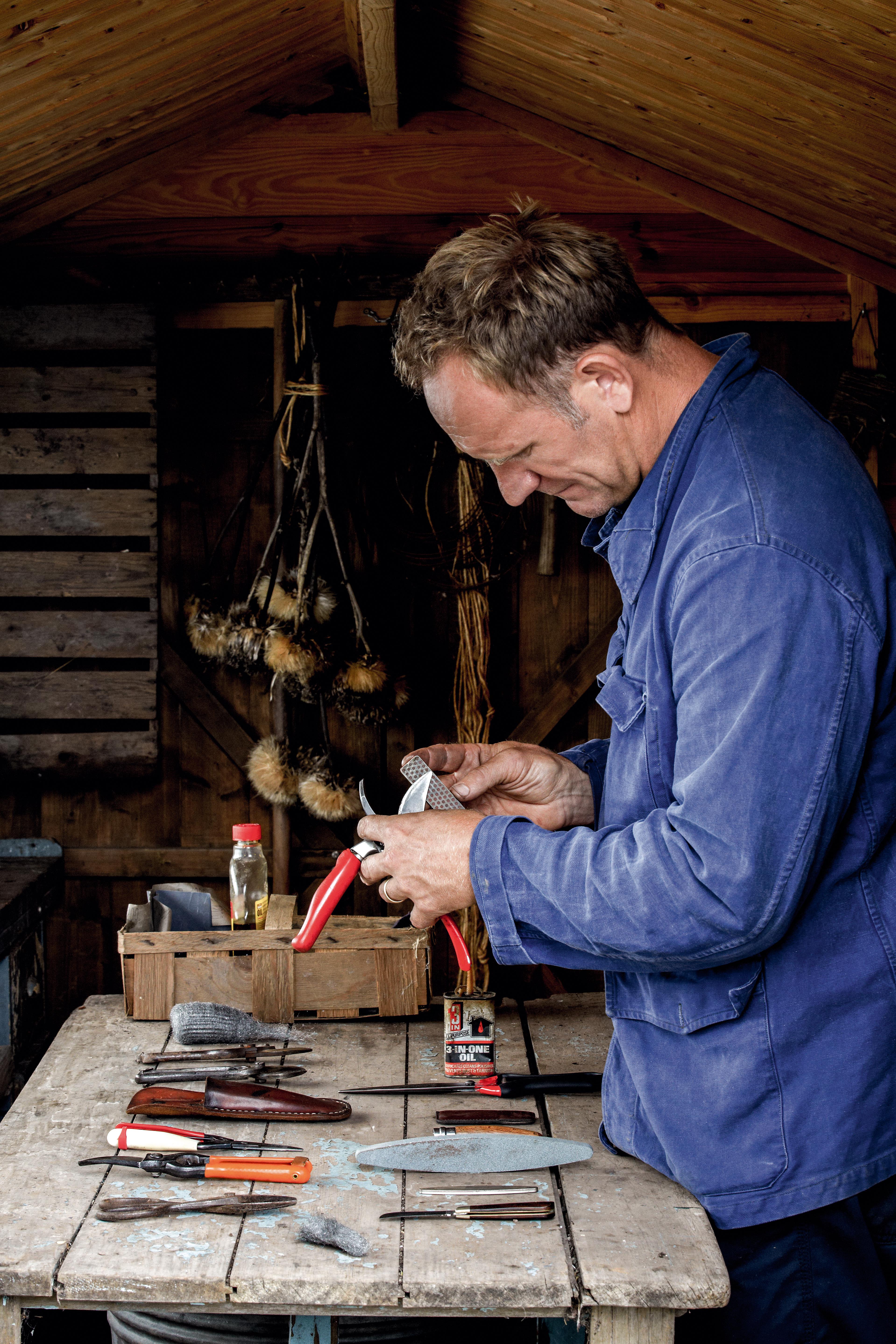A well-tended garden requires well-kept tools. It’s good to sharpen secateurs regularly, especially after a heavy or prolonged period of use. A dull blade is frustrating and leaves ragged cuts on plants. For best results, you should use a diamond sharpener or sharpening stone. In peak condition they are a pleasure to use; efficient and sharp and longer lasting.
Our team independently selects products featured in our editorial content. Some articles may contain affiliate links and we may earn a small commission through them. For more information, please see our Affiliates FAQ
How to sharpen secateurs
Sharpening secateurs can bring a new lease of life to your tools. Here's how to do it. Photographs Britt Willoughby Dyer
Step 1
Remove any sap that has built up on the inside of the blade and wipe the steel with an oily rag.
Step 2

Then hold the open secateurs in your left hand and run your sharpener over the bevel edge of the blade at 23 degrees (or follow the original angle).
Step 3
Turn them over and, with the sharpener flat against the blade, clean up the inside edge, removing any small burrs.
It can be tricky, but it’s worth persevering as with some practice you’ll find you get the feel of the bevel angle right. Once you’re satisfied with the blades, lightly oil the moving parts. Apply saddle oil to leather holsters, which helps to keep them supple and looking cared for. If you don’t want to sharpen tools yourself, many manufacturers offer a sharpening service.
Felco offers a full service for its secateurs for £25. You can find equipment mentioned here at many good hardware stores, and for an extensive range of handles (of varying sizes and shapes) take a look at B&Q.

© Britt Willoughby Dyer